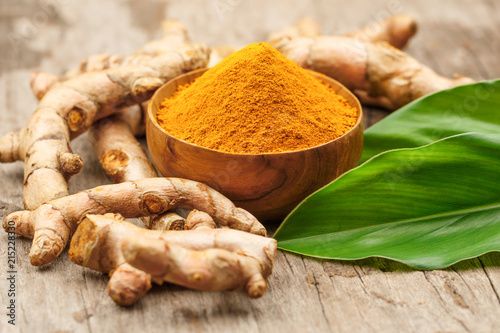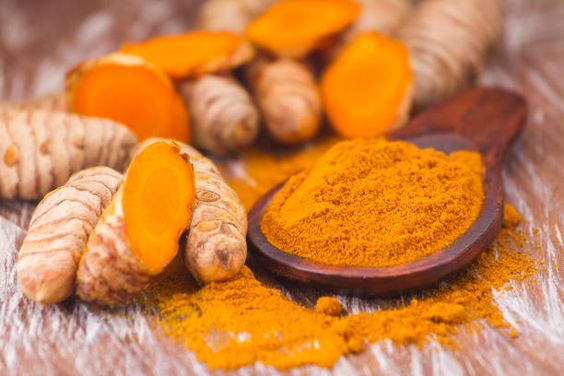Turmeric often comes to be known as “the golden spice”; indeed, it has been part of the prescription for thousands of years. Such is especially true for Ayurvedic and Chinese practises. The bright yellow color, the unique flavor, and several medicinal benefits make it an absolute favorite not only in the culinary arts but also in the natural mode of healing. This blog will talk about healing benefits of turmeric, how to include them in your daily cooking, and how you can integrate them into your diet for maximum health benefit.
What is Turmeric?
Turmeric is a flowering plant from the ginger family, commonly used as spice and for its medicinal purposes. The most active compound in turmeric responsible for the brilliant yellow color is curcumin which has many health benefits. Curcumin is an excellent powerful anti-inflammatory and antioxidant and healing agent.
 Healing Benefits of Turmeric
Healing Benefits of Turmeric
1. Anti-inflammatory Action
The most widely recognized curative benefit of turmeric is its anti-inflammatory property. Chronic inflammation has been linked to a whole array of medical issues, including heart diseases, arthritis, and even forms of cancer. The curcumin found in turmeric may remove all such inflammatory pathways from the body, reducing the symptoms of these ailments.
Research Discovery: Curcumin was also discovered to ease symptoms of arthritis and other inflammatory diseases, thus providing people with much-needed relief from pain and stiffness.
2. Antioxidant Action
Turmeric contains antioxidants. These agents of antioxidants neutralize the free radicals and fight oxidative stress. Free radicals may inhibit cell damage by the elements, thus making lesser chances of chronic diseases and promoting good health.
Research Insight: With antioxidants in turmeric, free radicals can be neutralized, thus preventing early aging and reducing the risk of chronic diseases.
3. Immunization System Booster
Turmeric has the ability of enhancing the body’s immunity, thus it can fight infections and diseases better. It is known to have anti-inflammation qualities and antioxidants that enhance a stronger immune system.
Research Highlight: Turmeric long-term use can boost the immunity system and prevent frequent common colds and flu.
4. Digestive Health
Turmeric promotes digestion by stimulating the production of bile in the body and reduces symptoms of indigestion. It may also reduce symptoms of IBS as well as many other digestive disorders.
Research Findings: Turmeric was found to reduce symptoms of IBS and improve general gut health in particular by virtue of digestion enhancement and prevention of inflammation in the intestines.
5. Enhancement in Brain Function
Curcumin extracted from turmeric is shown to be cognitive-enhancing as well as reduce the propensity for neurodegenerative diseases. Its usage involves a healthy brain through the elevation of BDNF, which is derived from brain-derived neurotrophic factor .
Research Discovery: There exist research findings showing curcumin can improve memory and cognitive function as it may also give a defensive action against diseases such as Alzheimer’s .
6. Promotes Heart Health
Turmeric works as a friend to cardiovascular health because it improves the endothelium functions-thus, the inner lining of blood vessels-and reduces inflammation. This is much better health for the heart, and it reduces risk for cardiovascular diseases.
Research Spotlight: Curcumin can enhance endothelial function and decrease the chances of heart diseases through anti-inflammatory and antioxidant mechanisms.
How to Use Turmeric in Daily Cooking
The whole turmeric added in your diet is just one delicious way to enjoy its health benefit. Here are some practical tips and recipes on using turmeric in cooking:
1. Turmeric Tea (Golden Milk)
Turmeric tea, also known as golden milk, is one of the most delicious and nutritious drinks which combines all turmeric with milk, honey, and spices.
Recipe: Mix 1 teaspoon of turmeric powder with 1 cup of warm milk, add a pinch of black pepper (for better absorption), and sweeten with honey. Heat gently and enjoy.
2. Turmeric-Infused Rice
Add a vibrant yellow color and earthy flavor to your rice by infusing it with turmeric. It is just a great way to add more flavor and nutrition to your meal.
Recipe: Add one teaspoon of turmeric powder when you boil rice and mix it well while cooking.
3. Adding turmeric to soups and stew
You can add turmeric very easily to soups and stews for adding flavors and healthy aspects. It combines better with lentils, vegetables, and chicken.
Recipe: Mix in 1-2 teaspoons of turmeric powder with other spices and add to your soup or stew. Prepare as you would any nourishing and delicious dish.
4. Turmeric Smoothies
Add a teaspoon of turmeric powder to smoothies to enhance the nutritional component. It especially pairs well with fruits like mango, pineapple, and banana.
Recipe: Blend 1 banana, 1 cup of spinach, 1 cup of pineapple, 1 tsp of turmeric powder, and 1 cup of almond milk smooth.
5. Turmeric Infused Vegetables
Season your vegetables with turmeric for a nutritional strength. Perfect for roasted or sautéed veggies.
Recipe: Toss together your selected veggies with olive oil, salt, pepper, and 1 teaspoon of turmeric powder. Bake in the oven at 400°F/200°C for 20 to 25 minutes.
6. Turmeric Salad Dressings
Mix some turmeric into your salad dressings for a tasty and healthy specialty. It is known to go well with ingredients like olive oil, lemon juice, and garlic.
Recipe: Whisk together 1/4 cup of olive oil, 2 tablespoons of lemon juice, 1 teaspoon of turmeric powder, 1 minced garlic clove, and salt and pepper to taste.
How to Use Your Turmeric the Best
Use with Black Pepper: Turmeric should be used with black pepper, as piperine in black pepper enhances curcumin bioavailability.
Use Fresh Root of Turmeric: If you can get your hands on it, use the fresh root for a stronger flavor and content of curcumin. Grate and use in place of ginger.
Moderation is Essential: Though turmeric is good, it is best used in moderation. Too much turmeric could lead to digestive problems or other issues.
Conclusion: Cultivate the Golden Spice
It is more than a spice; it is a powerful ally to keep in good health and well-being. Turmeric contains anti-inflammatory, antioxidant, and immune-boosting properties that would make a great addition to your daily cooking repertoire. By putting turmeric in so many different dishes such as soups, stews, smoothies, and salads, for example, one can appreciate the benefit of health while nourishing through flavor and nutritional value.



